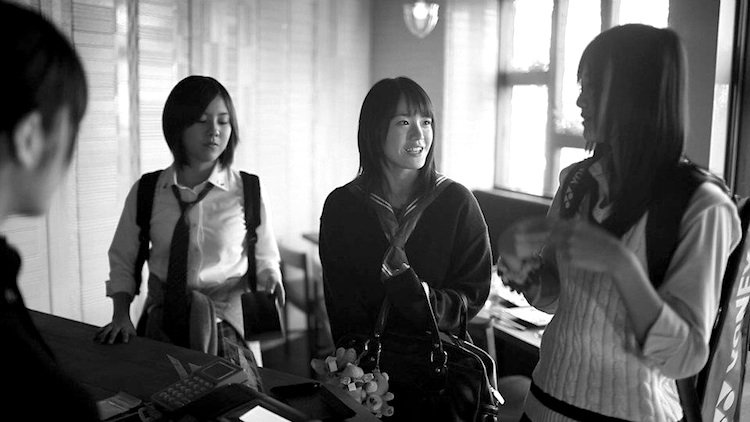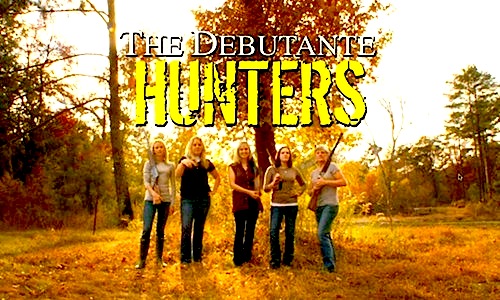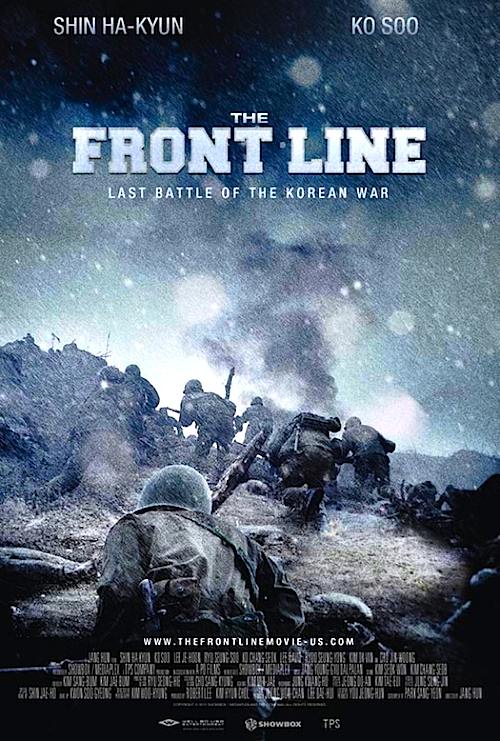By Joe Bendel. They are sort of like the Swiss Family Robinson, except more archetypal. They also must learn to share their bizarre new world with fantastical insectoid creatures in Tibor Banoczki & Sarolta Szabo’s unusually ambitious, genre-defying animated short film The Conquerors, which screens during this year’s Sundance Film Festival in Park City.
Amidst a roiling sea, a man and a woman become castaways on a forbidding island. Since she is pregnant, their situation is particularly dire. Yet, after some initial days of hunger, the man learns how to tame the smaller beetle-like creatures and hunt the larger ones. The woman safely delivers her baby and several more follow. Eventually, their family becomes a small community. For the most part, they live in harmony with their macabre environment, but danger is ever present. Then outsiders arrive and everything changes.
Rendered in a distinctive photorealistic style of animation, Conquerors has a striking look truly unique unto itself. Its evocative black-and-white images suggest the influence of both German expressionism and 1930’s adventure serials in equal measure, while the strange world owes more to the surrealists. Yet, in terms of tone, its closest comparison might be René Laloux’s Fantastic Planet, for its bold use of Biblical motifs and brutally naturalistic representation of the rule of the jungle.
Conquerors screens as part of the short program in Sundance’s New Frontiers track, which is sort of a catch-all for work that is experimental or tech-driven. While its animation might be cutting edge, it is still perfectly accessible from a narrative standpoint. In fact, Banoczki and Szabo tell quite an epic tale in an economic twelve minutes.
So richly detailed and loaded with allegorical significance, Conquerors is definitely the sort of film that rewards multiple viewings. Visually, it is absolutely absorbing, even when depicting unsettling events. A co-production of the National Film Board of Canada, it would be a highlight of most any short film program. Highly recommended, it screens during the 2012 Sundance Film Festival’s New Frontiers shorts block this coming Monday (1/23), Wednesday (1/25), and next Saturday (1/28) in Park City and this coming Tuesday (1/24) in Salt Lake.
Posted on January 21st, 2012 at 10:04am.






